Recently, I was invited to attend and give a speech at the first ever inter-university debate on alcohol, held in Nairobi, Kenya. The topic of discussion was: “My Liquor, Our Problem.”
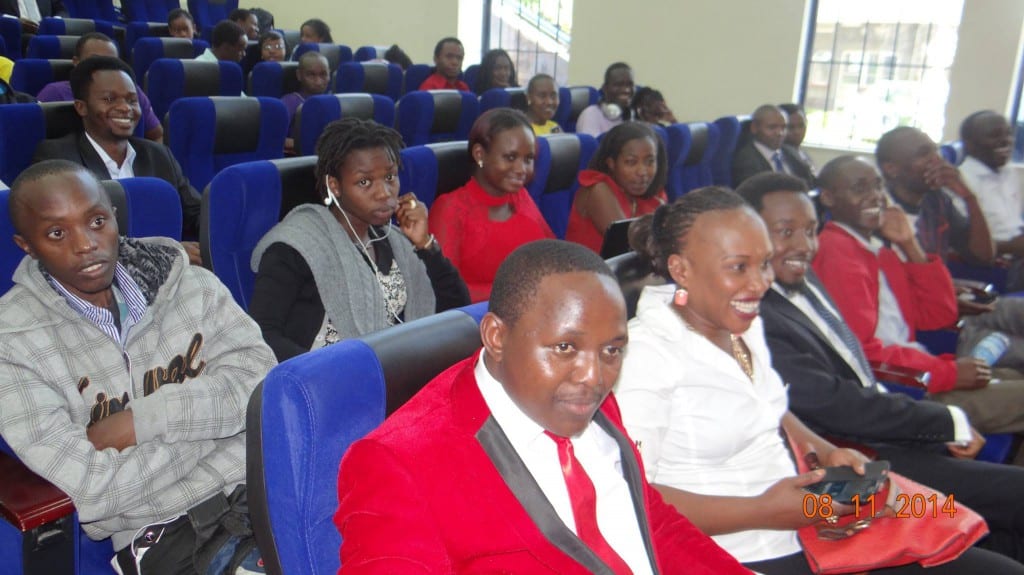
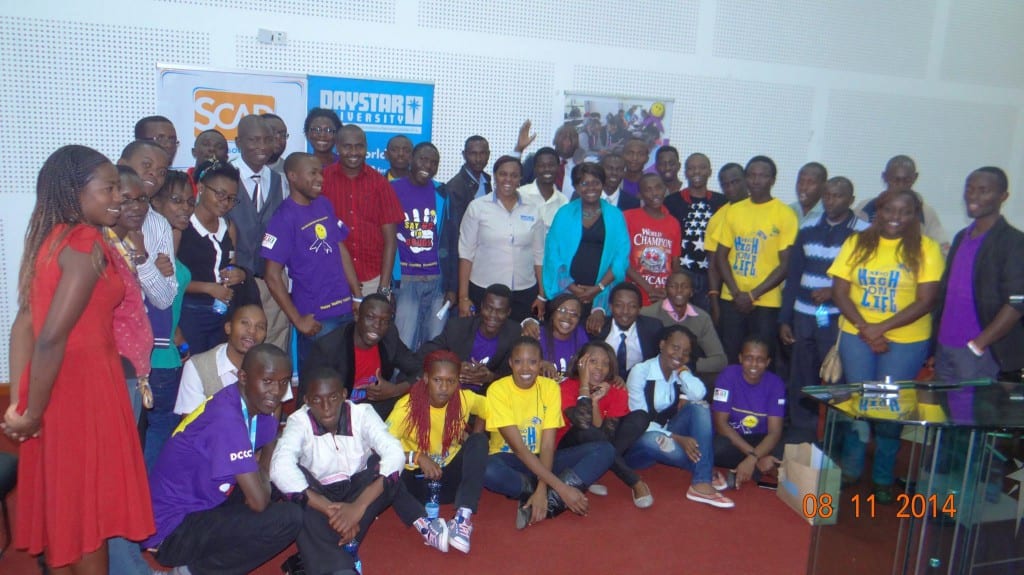
Volunteers and organisers
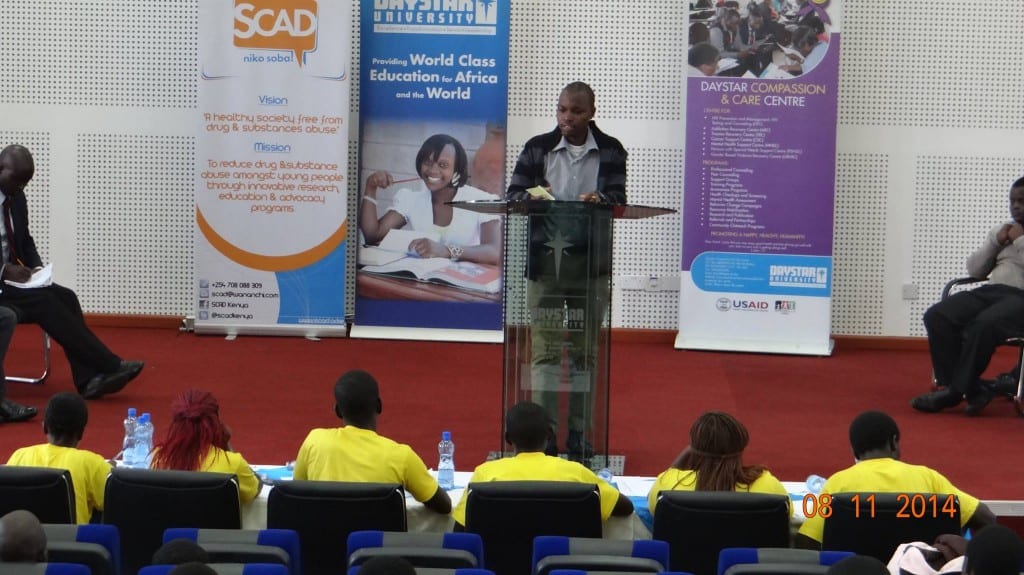
At Daystar University, Nairobi
During IOGT International’s 68th World Congress, I was especially inspired by world renowned David Jernigan and his keynote on alcohol marketing. David presented a lot of important findings and his analysis of the alcohol industry in a really exciting and stimulating way. I felt this was an opportunity to talk to these future leaders on how alcohol marketing makes us change how we think about certain things and how their “abnormal” becomes our “normal.”
I first talked about the message towards men. Big Acohol wants them to think that virility, masculinity, and strength is shown by being “imara kama simba” (Strong like a lion). The alter message therefore is that weak men drink juice, soda, water, tea or coffee. But real men only use alcohol in this case a pilsner beer.
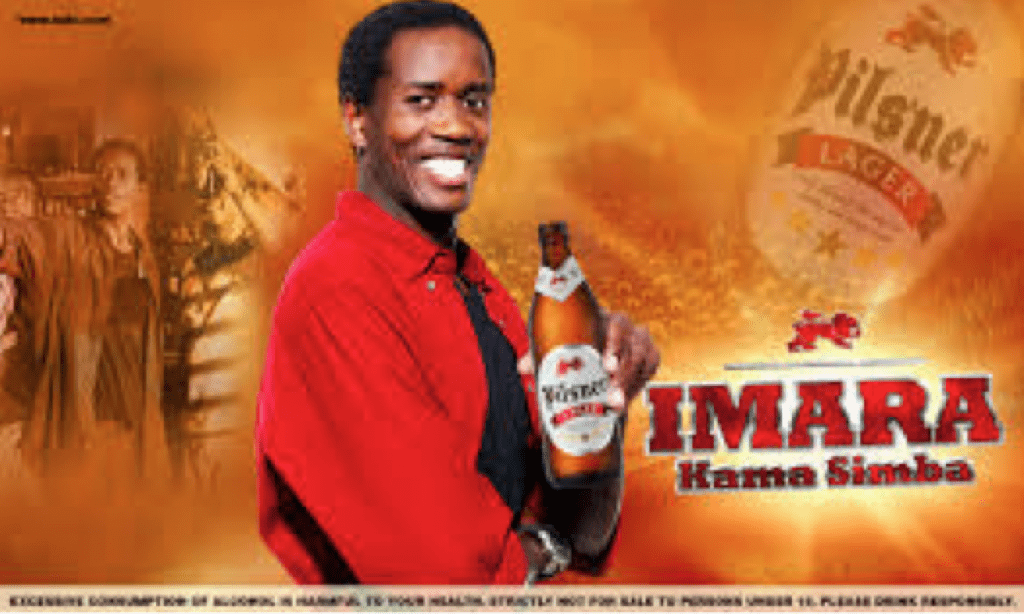
“Strong like a lion”
There’s also a sense of promotion of the fact that to show that one is grown up, they should use alcohol. The “It’s our time” slogan is being used all across East Africa by Big Alcohol. “It’s our time” they say to.. WHAT… I wonder? Kill ourselves?
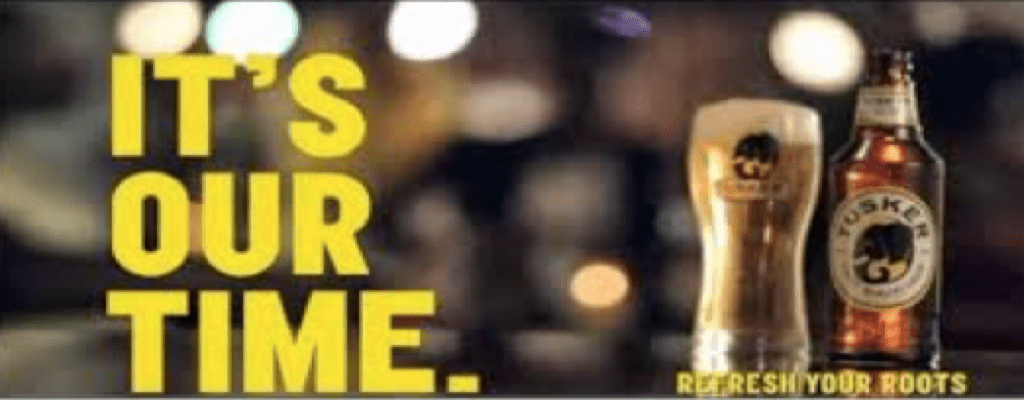
The weird thing about this commercial is that the Western alcohol industry tells us in Africa that “it is our time.” And at the same time they tell us: what to do with that time – using their alcohol, to make them earn profits. Apparently it’s not our time to decide ourselves how we want to use it; and that Westerners’ alcohol habits are not our role models. Apparently we in Africa need the alcohol industry to give us experiences (as you can see below)…
I also mentioned how alcohol marketing has increased in the last 10 years because Africa is seen as the new market for Big Alcohol to make money since North America and Europe have largely saturated markets. The alcohol industry really goes very aggressively about it: Art activities, music shows, sports events are sponsored by one alcohol brand or another.
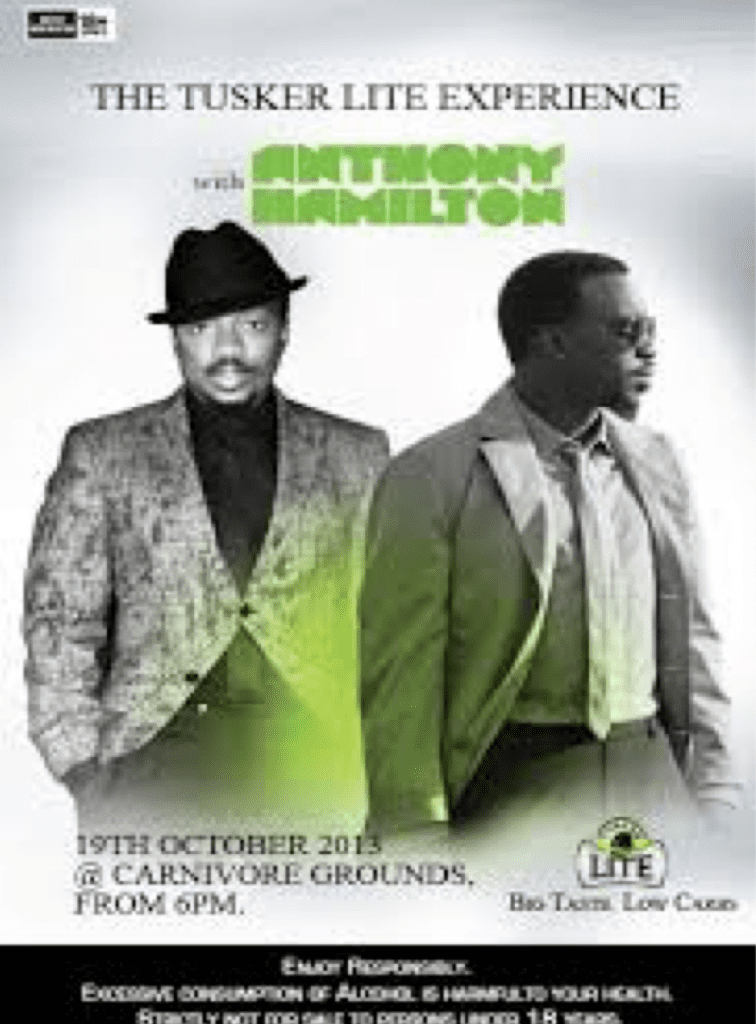
Women are the next new targets. Disposable income that comes with an emerging middle class has put Kenyan women high on the priority of Big Alcohol. It’s an industry that is thirsting for ever more profits and that doesn’t care for much else than the the Big Buck!
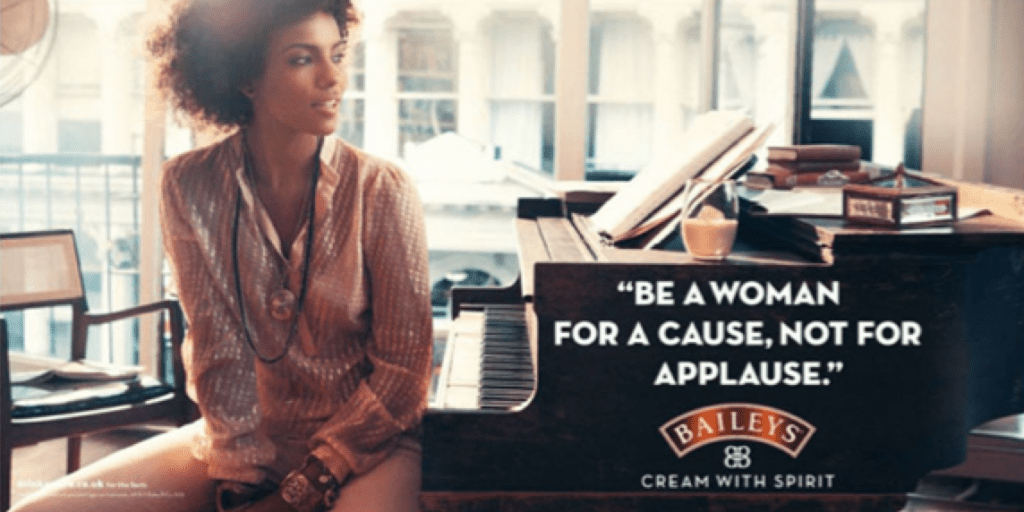
If you have a cause, why do you need alcohol…
The middle class Kenyan woman is liberated, has a good job, can pay her own bills and afford a holiday or two. Big Alcohol uses the image of the liberated woman as one who is free to choose her own “poison”: for she knows what she wants.
It starts with a snap, the obesity, the liver cirrhosis, the cancer, the addiction, the violence, the HIV infections… Alcohol is one of the biggest obstacles to development in low- and middle income countries. And in high-income countries we can now see an epidemic of liver disease in young, empowered, “liberated” young British women – to name just one example of how alcohol undermines women empowerment and gender equality.
“Class”, which is so vital to this rising group of women is also included in marketing advertisements.

“Be we what Big Alcohol tells you to be…”
Does this mean therefore that those women who don’t use alcohol don’t know what they want, aren’t liberated enough and aren’t equal to men? To me these types of blatant corporate messages are so paradoxical. African women are supposed to “be a girl with a mind” – but they should let the alcohol industry tell them to follow a European lifestyle?
On the one hand we are supposed to have our own minds, but then the alcohol industry goes on to tell us to be weight-conscious. Hypocrisy in a nutshell and on billboards… However, Big Alcohol lobbies against initiatives that seek to compel the alcohol industry to actually disclose the ingredients of their products – the amount of sugar and corn syrup, the chemicals added – so that consumers could actually know (and use their minds).
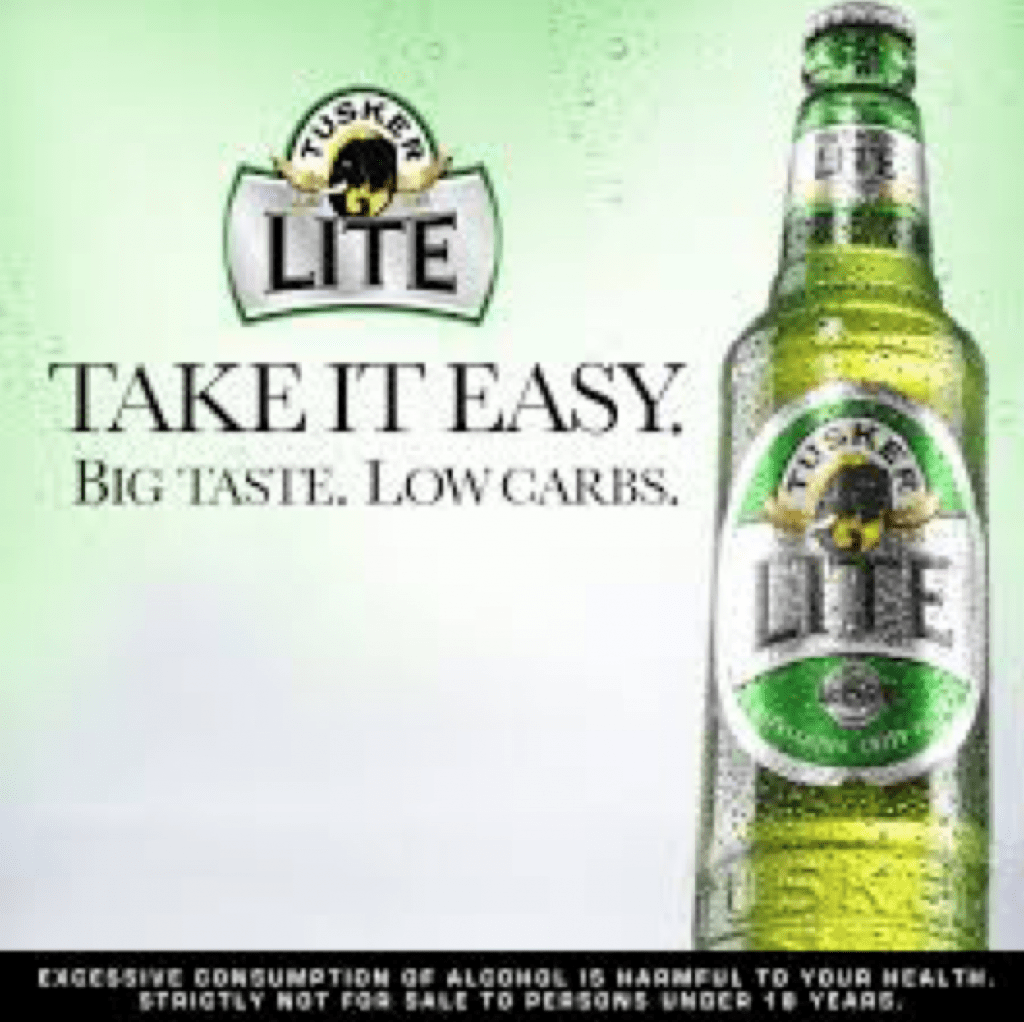
Low carbs. Low ethics. No ingredient labels…
African women with mind surely see through this type os messaging – and they understand that their mind doesn’t depend on an alcohol company and that for their attitude they don’t need to have a beverage in their hands.
So I urged the students to be more wary of marketing. It is important to see through to what the industry is saying. But it is equally vital to realize what Big Alcohol is not telling us.